Key takeaways:
- Ethical technology requires balancing innovation with moral principles, focusing on transparency, inclusivity, and accountability.
- Real-world examples, such as prioritizing user consent and developing assistive technologies, demonstrate the positive impact of ethical considerations on user experience and accessibility.
- Challenges include navigating biases in algorithms, ensuring user privacy, and striking a balance between rapid innovation and ethical responsibility.
- Personal reflections highlight the ongoing struggle to prioritize ethical standards in technology projects amidst pressures for progress and deadlines.
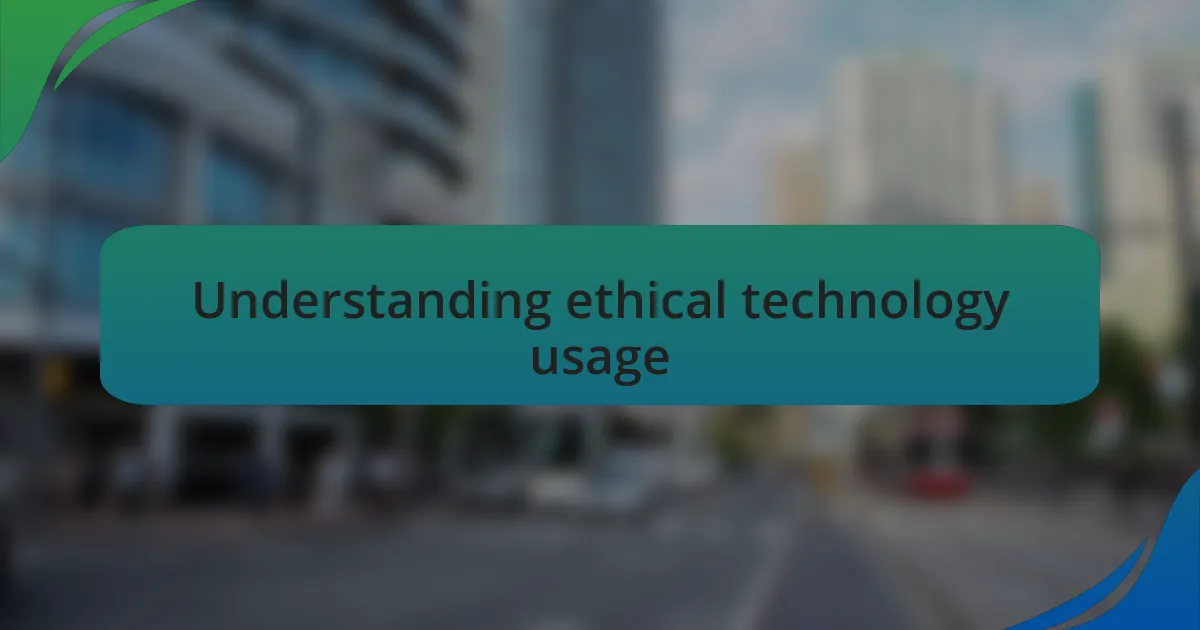
Understanding ethical technology usage
Ethical technology usage is about aligning our technological advancements with moral principles that prioritize human well-being. I remember a time when I was part of a project that aimed to implement an AI tool in a small business. We spent countless hours discussing not just the potential benefits, but also the ethical implications of how this tool could affect employees and customers alike. It truly highlighted for me how crucial it is to consider the human impact of our tech decisions.
Have you ever stopped to think about the consequences of your everyday tech choices? I often find myself reflecting on this when using social media platforms. Balancing engagement with respect for privacy and data security can create a challenging landscape. This made me realize that ethical usage isn’t just a buzzword; it’s a responsibility we all share in the tech-driven world.
Ultimately, it’s about making informed choices that foster trust and transparency. I once had a candid discussion with a fellow entrepreneur who was hesitant to adopt cloud services due to concerns over data misuse. That conversation opened my eyes to the importance of not only advocating for innovation but also ensuring that ethical considerations guide our path forward. Isn’t it fascinating how small decisions can have lasting effects on our communities and industry standards?
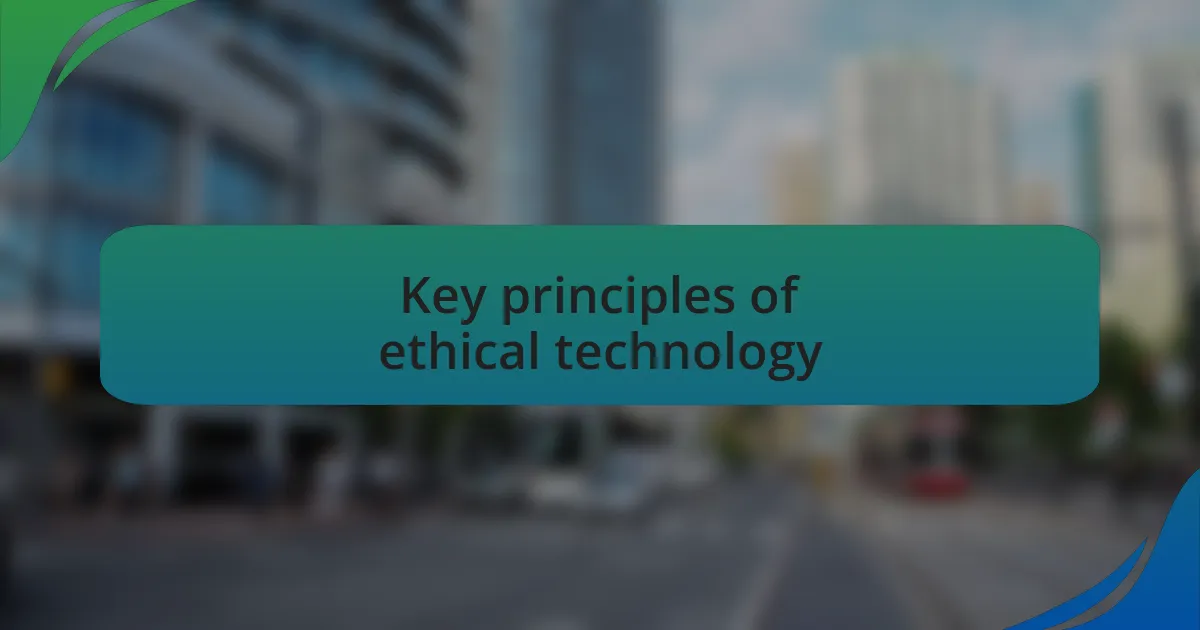
Key principles of ethical technology
One of the key principles of ethical technology is transparency. I remember working on a project where we had to clarify the data collection processes involved in our service to our users. Explaining this not only built trust but also empowered users to make informed choices about their participation. Have you ever felt frustrated when you found out that a service was misusing your data? Transparency can alleviate that frustration by ensuring everyone knows what to expect.
Another principle centers around inclusivity. When developing a software solution, I was deeply moved by how including diverse voices in the design process led to a product that resonated with a broader audience. It made me question how often we overlook perspectives that could enhance technology’s impact. Are we designing tech for a select few or for everyone? Inclusivity ensures that technology serves all, not just the majority.
Lastly, there’s the principle of accountability. During a strategy meeting, a team member suggested establishing clear guidelines to address potential ethical breaches. This proactive approach resonated with me because it highlighted the importance of owning our decisions. What happens when technology fails or harms instead of helping? By fostering a culture of accountability, we can better navigate these challenges and improve our ethical standards over time.
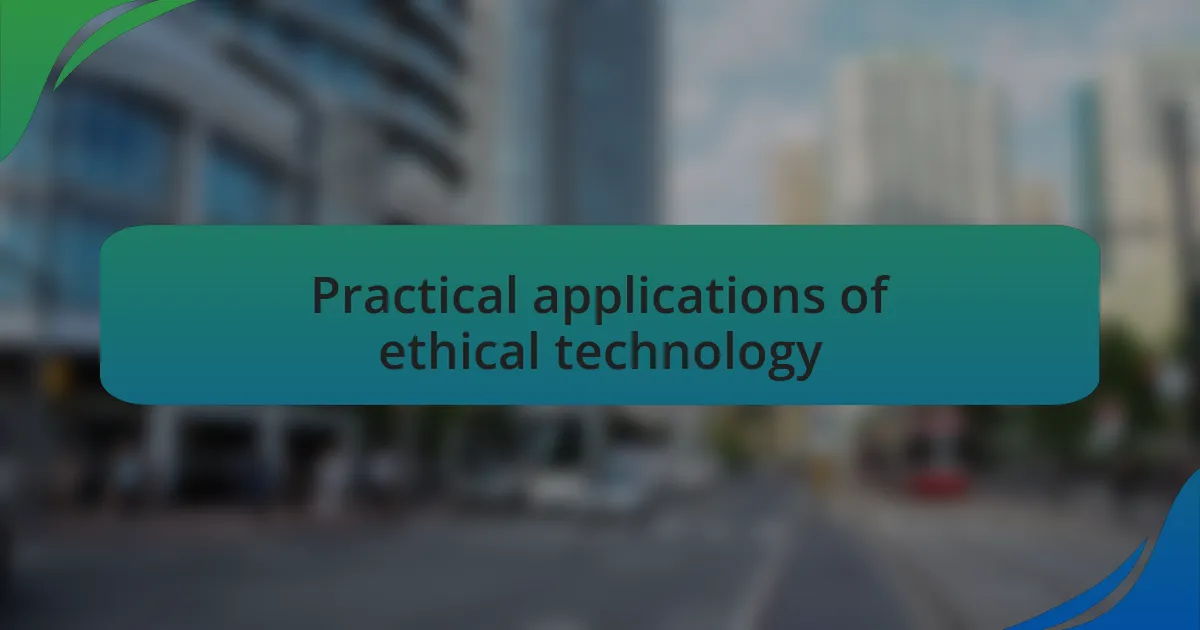
Practical applications of ethical technology
In practical applications, ethical technology can profoundly enhance user experience. For instance, when I worked on a digital platform that prioritized user consent, we noticed a significant increase in engagement. It was clear to me that when users felt respected and informed about how their data was used, they were more willing to participate. Have you ever felt more positive about a brand simply because they respected your choices?
Another powerful example is in the development of assistive technologies, which can profoundly transform lives. I once collaborated on a project focused on creating a user-friendly app for individuals with disabilities. Seeing firsthand how such technology could empower users to perform daily tasks independently was genuinely inspiring. It made me reflect on the broader question: isn’t it our responsibility to ensure that technology enhances accessibility for all?
Moreover, implementing sustainability in tech solutions has become increasingly vital. I remember attending a workshop where we examined how our choices in product lifecycle affect the environment. It sparked a lively discussion; can ethical considerations also drive innovation? I believe that by pursuing sustainable practices, we not only honor our ethical commitments but also drive the potential for groundbreaking advancements in technology.
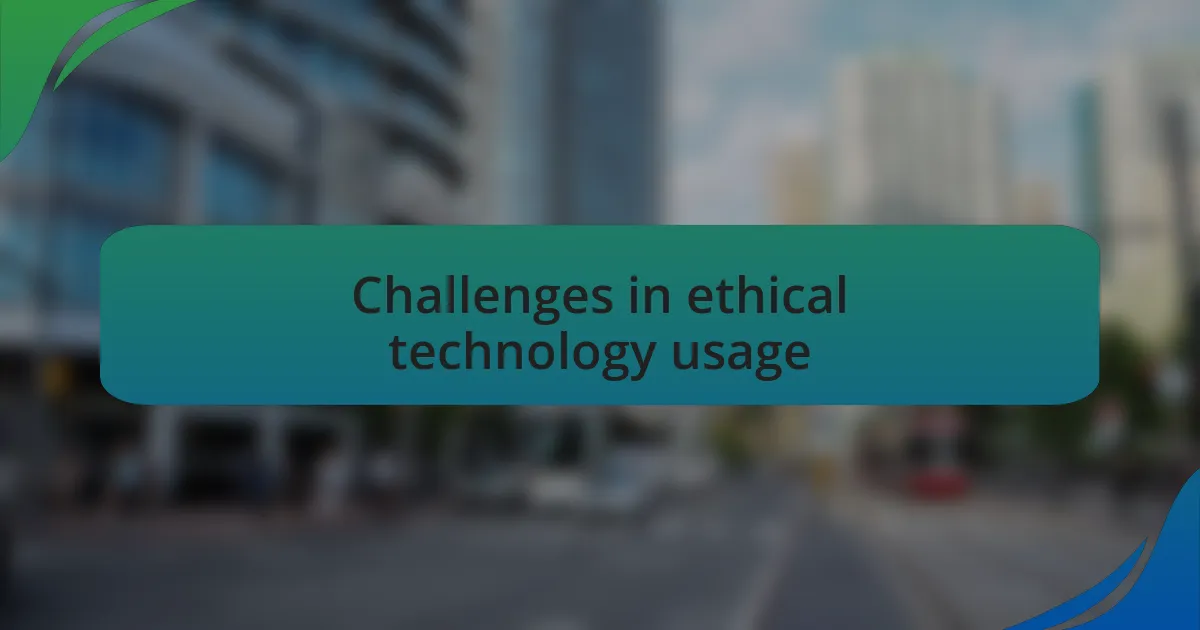
Challenges in ethical technology usage
Navigating the challenges of ethical technology usage can often feel like walking a tightrope. I recall a digital marketing initiative where we faced backlash for using data analytics without fully integrating user consent protocols. This experience underscored how essential transparency is; neglecting ethical guidelines can erode trust, leading to user disengagement and brand damage. Have you ever hesitated to engage with a service because you felt your information was mishandled?
Another significant hurdle lies in addressing the biases embedded in algorithms. While working on an AI project, I was dismayed to discover how certain demographic data could skew results, leading to unintended discrimination. It made me realize that ethical considerations need to be at the forefront of technology design. How can we create a fair and inclusive digital environment if we don’t continuously question and rectify these biases?
Lastly, balancing innovation and ethical responsibility often seems daunting. There was a time during a tech conference when a colleague argued that rapid development should come first, while I vigorously defended the need for ethical frameworks. This clash highlighted the tension many SMEs face: should we prioritize speed or ethics? In my opinion, the true challenge lies in recognizing that one does not have to be compromised for the other.
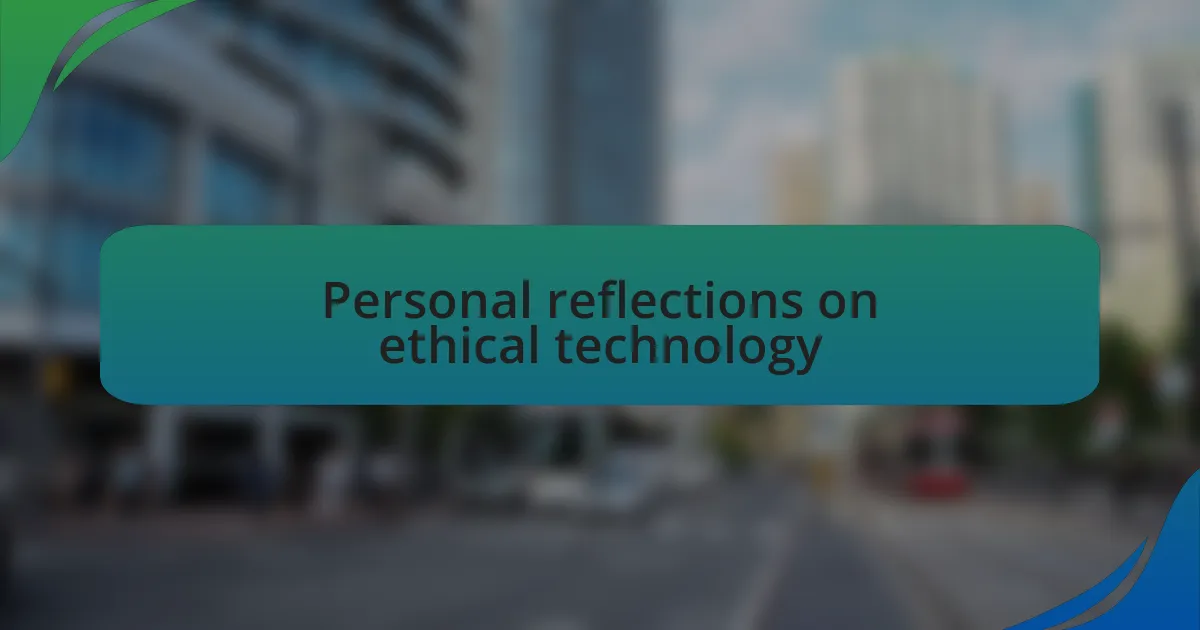
Personal reflections on ethical technology
Reflecting on ethical technology usage often brings me back to a conversation I had with a friend who works as a software developer. She shared her frustration about being pressured to meet deadlines that compromised the ethical standards of the projects she was working on. It made me think, how often do we sacrifice our moral compass for the sake of progress? It’s a battle that many of us face in our roles within SMEs.
I vividly remember a project where we implemented a customer feedback tool without fully considering the implications of data privacy. While the initial results seemed promising, I soon felt a twinge of guilt as I pondered the potential breach of trust with our customers. Did we prioritize our needs over theirs? This experience taught me that ethical considerations can’t be an afterthought; they should weave through every stage of technology deployment.
One of my most enlightening moments came during a workshop on responsible innovation. The speaker posed a simple yet profound question: “What kind of digital legacy are we leaving behind?” That question resonated deeply with me. It pushed me to reflect on how each decision we make in technology not only impacts our present but also shapes future interactions. I often wonder if we are truly ready to embrace the responsibility that comes with such power.